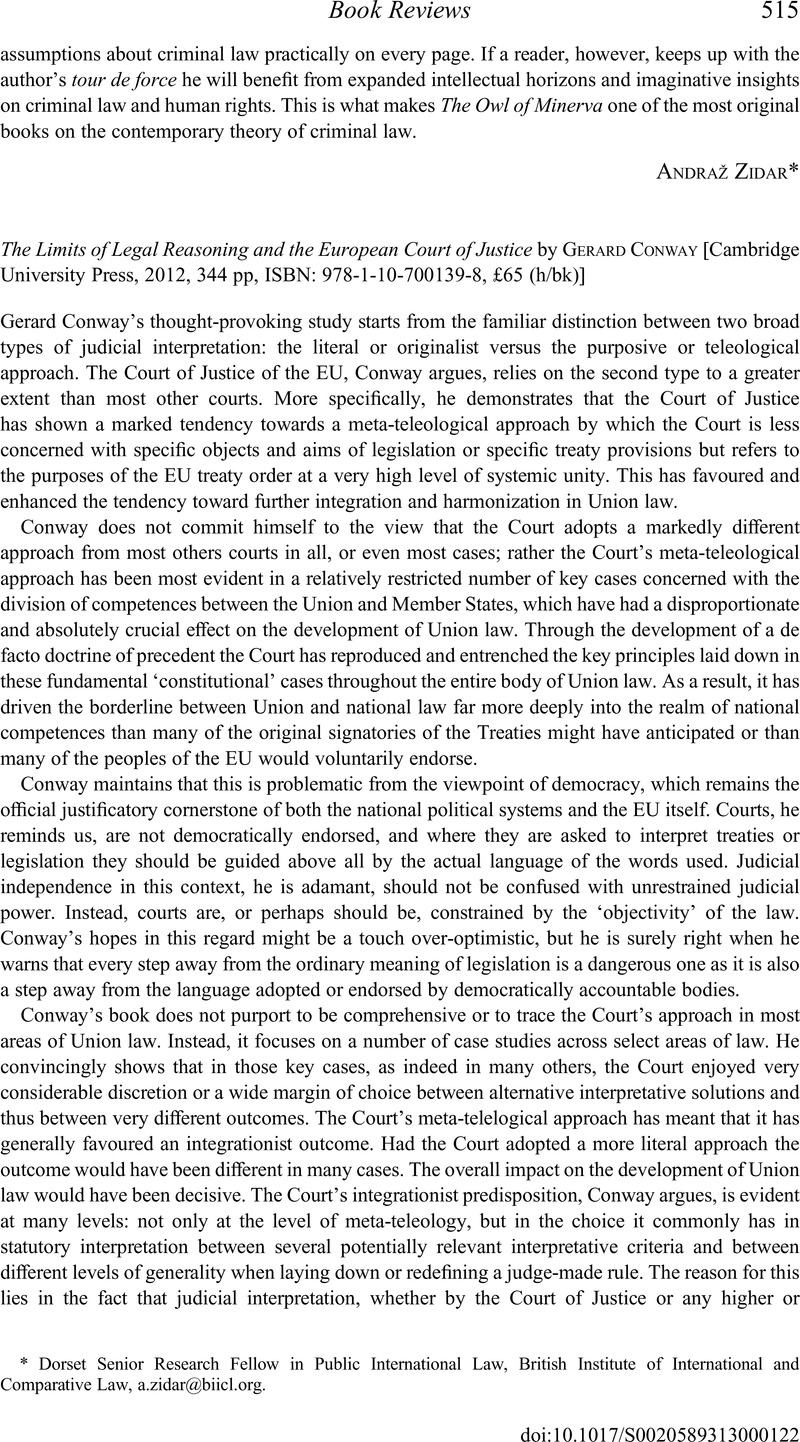No CrossRef data available.
Published online by Cambridge University Press: 09 April 2013

1 Draghi's assertion that bond buys could be justified as monetary policy, is disingenuous: monetary policy cannot be ‘conditional’ on fiscal control over Member States’ budgets; the bond buys must not be selectively aimed at only a few eurozone members; they must not be a source of government funding; they must not place the central bank in a position where it becomes the hostage of governments from whom it has bought so much debt that it can no longer allow the government to default lest that default wipe out the bank's own capital base; and the ECB is effectively printing money contrary to both Articles 123 and 127 TFEU. Contrary to Draghi's assurances printing money will ultimately cause inflation including asset price inflation, unless the eurozone languishes in stagflation for many years to come.
2 The leading German business daily Handelsblatt noted in the wake of the judgment that the Constitutional Court's President, Judge Voßkuhle, is on record as calling for the restriction of constitutional complaints by individual applicants. It also reported that he retains his chair at Freiburg University and remains a member of the governing body of that university's foundation governing council—together with finance minister Schäuble and EU Commission President Barroso with whom he has shared a close working relationship for many years and continues to do in his ‘impartial’ judicial capacity. And the British Guardian has revealed that there ‘have been strong suggestions of at least one high-level meeting between the government and the court’ in the run-up to the judgment, including ‘speculation that the two bodies might have worked closely on a face-saving solution’. The judgment had been ‘agreed’ before 22 August when most of the judges departed for a holiday from the reality of their hard work on behalf of the government; as the Süddeutsche Zeitung revealed on 7 September, even the contents of the judgment were known in Berlin and amongst foreign political leaders and investment bankers including those at Goldman Sachs well in advance. Constitutional law in Germany, sadly, seems to be the justification of government policy by normative means.